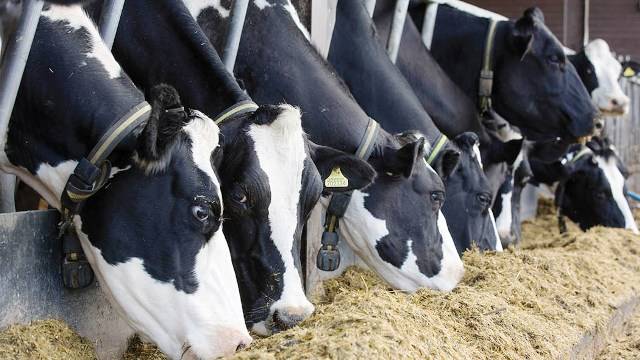
The development and application of modern technology have enhanced the health of livestock or farm animals considerably. Some of the benefits include - high profits and well-organized livestock management. Moreover, the growing use of precise, robust and consistent livestock production tools has improved the monitoring, administration and movement of cattle, which has resulted in momentous productivity gains across the farming business.
Livestock Management
Here are a few best practices to make your livestock management easy and efficient so that your cattle give better results:
1. Provide Nutritional Diet
Always select feedstuffs that are loaded with nutrients so that your cattle reach their best levels of production. A smaller amount of red meat and more feed variability will maximize the production of both - milk and meat. Feeding animals with less human food and letting them graze pastures that have rich-fiber content will improve their overall nutrition-ingestion and resistance to unbearable diseases.
2. Give the Right Food Supplements
Supplements have proved to improve animal health as well as productivity by encouraging the growth of helpful microbes in the rumen. Red clover is famous for an enzyme called Trifolium pratense that increases the capability of your livestock to take in dietary protein. The presence of clover in the feed helps in improving milk production and also increases the appetite of livestock.
Tar brush supplements avoid gastrointestinal acidosis in livestock and reduce the release of greenhouse gasses. Azolla Caroliniana (a water fern grown in ponds) offers added protein to animals that are lacking in protein. Including supplements in your farm animals' daily feed is the best way to increase the productivity of ruminant animals.
3. Use Technology
Technology facilitates reliable and accurate examination of animal health by providing appropriate and accurate interpretations in the form of structural figures. The arrival of imaging tools and livestock scales permits remote monitoring of animal health and helps farmers in making informed decisions regarding rearing and feeding patterns. You will get several makes and models of livestock scales on the market depending on your resources. These automated cattle scales are long-lasting, cost-effective, and accurate for:
-
Checking animal health
-
Knowing their exact weight before breeding
-
Evaluating the conversion of feed
-
Assessing their performance
4. Track animal Performance
If you track the performance of livestock, you can easily recognize healthy breeds that do better and pick the unproductive breeds and use them for other things. Checking animal weight facilitates early recognition of diseases and prevents the dangerous disease from spreading to other animals on the farm. Monitoring livestock will also help in selecting the right weaning time and choosing animals for crossbreeding.
5. Take Suitable Precautions
Animals that are imported from moderate climates often lack resistance to heat, humidity, ticks, parasites, and tropical diseases hence it is essential to keep them in dirt-free stalls where they stay away from disease vectors. Instead of letting your farm animals graze, you must cut the silage and give them to the stalls. You can also purchase imported feed that assures quality.
6. Customize Practices Favorable to Local Climate
A number of people depend on livestock for livelihood but the benefits of rearing cattle could stop if the customary farming practices and conventional grazing are restored with industrial systems that do not take natural factors into deliberation. Altering farm practices for for-profits will work only when the local breeds, resources as well as feedstuffs are utilized and wastage is reduced. Local breeds when given a proper diet along with fresh water and supplements will stay healthy and be productive and profitable for the farmers.











